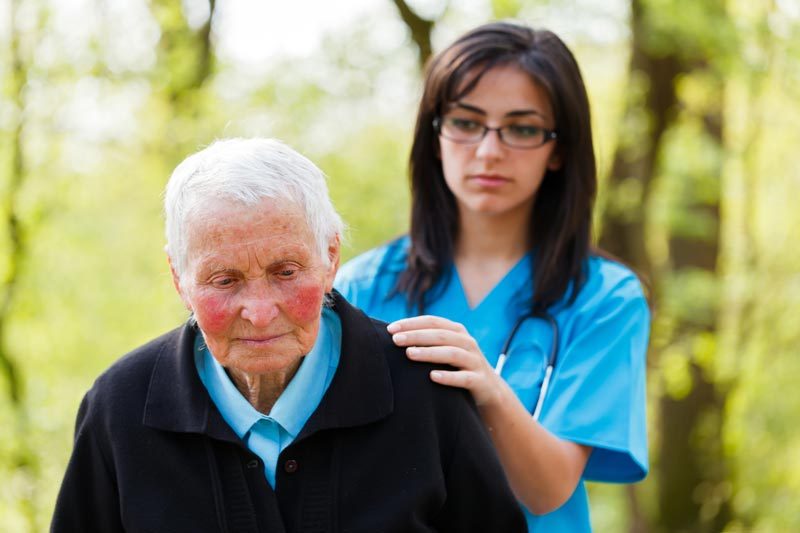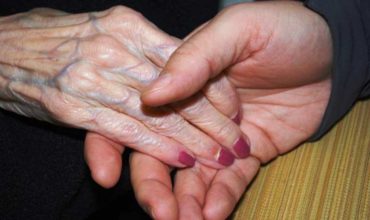Home care services are usually provided by home care organizations but may also be obtained from registries and independent providers. Home care organizations include home health agencies; hospices; homemaker and home care aide (HCA) agencies; staffing and private-duty agencies; and companies specializing in medical equipment and supplies, pharmaceuticals, and drug infusion therapy. Several types of home care organizations may merge to provide a wide variety of services through an integrated system.
Home care services generally are available 24 hours a day, seven days a week. Depending on the patient’s needs, these services may be provided by an individual or a team of specialists on a part-time, intermittent, hourly, or shift basis. Following are descriptions of the various types of home care providers.
Home Health Agencies
The term home health agency often indicates that a home care provider is Medicare certified. A Medicare-certified agency has met federal minimum requirements for patient care and management and therefore can provide Medicare and Medicaid home health services. Individuals requiring skilled home care services usually receive their care from a home health agency. Due to regulatory requirements, services provided by these agencies are highly supervised and controlled. Some agencies deliver a variety of home care services through physicians, nurses, therapists, social workers, homemakers and HCAs, durable medical equipment and supply dealers, and volunteers. Other home health agencies limit their services to nursing and one or two other specialties. For cases in which an individual requires care from more than one specialist, home health agencies coordinate a caregiving team to administer services that are comprehensive and efficient. Personnel are assigned according to the needs of each patient. Home health agencies recruit and supervise their personnel; as a result, they assume liability for all care.
Hospices
Hospice care involves a core interdisciplinary team of skilled professionals and volunteers who provide comprehensive medical, psychological, and spiritual care for the terminally ill and support for patients’ families. Hospice care also includes the provision of related medications, medical supplies, and equipment. It is based primarily in the home, enabling families to remain together. Trained hospice professionals are available 24 hours a day to assist the family in caring for the patient, ensure that the patient’s wishes are honored, and keep the patient comfortable and free from pain. Most hospices are Medicare certified and licensed according to state requirements.
Homemaker and Home Care Aide Agencies
Homemaker and HCA agencies employ homemakers or chore workers, HCAs, and companions who support individuals through meal preparation, bathing, dressing, and housekeeping. Personnel are assigned according to the needs and wishes of each client. Some states require these agencies to be licensed and meet minimum standards established by the state. Most homemaker and HCA agencies recruit, train, and supervise their personnel and thus are responsible for the care rendered.
Staffing and Private-duty Agencies
Staffing and private-duty agencies generally are nursing agencies that provide individuals with nursing, homemaker, HCA, and companion services. Most states do not require these agencies to be licensed or meet regulatory requirements. Some staffing and private-duty agencies assign nurses to assess their clients’ needs to ensure that personnel are properly assigned and provide ongoing supervision. These agencies recruit their own personnel. Again, responsibility for patient care rests with each agency.
Pharmaceutical and Infusion Therapy Companies
Pharmaceutical and infusion therapy companies specialize in the delivery of drugs, equipment, and professional services for individuals receiving intravenous or nutritional therapies through specially placed tubes. These companies employ pharmacists who prepare solutions and arrange for delivery to patients. Nurses also are hired to teach self-administration in patients’ homes. Some pharmaceutical and infusion therapy companies are home health agencies, certified by Medicare. In addition, some states require these organizations to be licensed. Each company assumes responsibility for personnel and the services rendered.
Durable Medical Equipment and Supply Dealers
Durable medical equipment and supply dealers provide home care patients with products ranging from respirators, wheelchairs, and walkers, to catheter and wound care supplies. These dealers employ staff who deliver and, when necessary, install these products as well as instruct patients on their proper in-home use. Durable medical equipment and supply dealers usually do not provide physical care for patients, but there are a few exceptions. Some dealers offer pharmacy and infusion services, where a nurse administers medication and nutritional formulas to patients and teaches them the proper techniques for self-administration. Some companies also provide respiratory therapy services to help individuals use breathing equipment. Durable medical equipment and supply dealers that bill the Medicare program are required to meet federal minimum standards. Some states require that these organizations be licensed. Each dealer is liable for its personnel and the services provided to patients.
Registries
Registries serve as employment agencies for home care nurses and aides by matching these providers with clients and collecting finder’s fees. These organizations usually are not licensed or regulated by government. Registries are not required to screen or background-check the caregivers, but some do undertake these tasks routinely. In addition, although not legally required to, some registries offer procedures for patients to file complaints. Clients select and supervise the work of a registry-referred provider. They also pay the provider directly and must comply with all applicable state and federal labor, health, and safety laws and regulations, including payroll tax and social security withholding requirements.
Independent Providers
Independent providers are nurses, therapists, aides, homemakers and chore workers, and companions who are privately employed by individuals who need such services. Aides, homemakers, chore workers, and companions are not required to be licensed or to meet government standards except in cases where they receive state funding. In this arrangement, the responsibility for recruiting, hiring, and supervising the provider rests with the client. Finding back-up care in the event that the provider fails to report to work or fulfill job requirements is the client’s responsibility. Clients also pay the provider directly and must comply with all applicable state and federal labor, health, and safety requirements.
Related items
How to Take Care of Yourself While Taking Care of a Loved One?
Remember: your needs are important too! Caring for a loved one is an emotional task and ca
With What Things Should We Have Outside Help For Eldercare?
THIRD IN A SERIES: EASY ANSWERS TO TOUGH QUESTIONS ABOUT ELDERCARE
You can read the first






